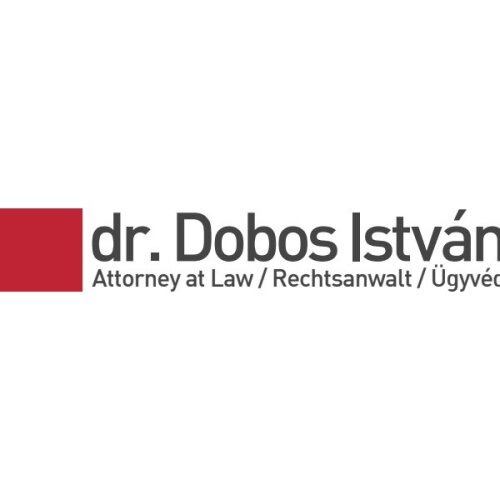Best Government Relations & Lobbying Lawyers in Budapest
Share your needs with us, get contacted by law firms.
Free. Takes 2 min.
List of the best lawyers in Budapest, Hungary
About Government Relations & Lobbying Law in Budapest, Hungary
Government relations and lobbying in Budapest, Hungary, are integral components of the interaction between businesses, non-governmental organizations, and the government. This field involves influencing public policy and decision-making processes to reflect various interests. In Hungary, lobbying is regarded as a legitimate and valuable method of engagement with policymakers, provided it is conducted transparently and ethically. Understanding the complexities of local governmental structures and legal norms is essential for effective lobbying, particularly in a dynamic political environment like Budapest.
Why You May Need a Lawyer
There are several common situations where individuals or entities may require legal help in government relations and lobbying:
- Navigating the complex regulatory and compliance requirements.
- Ensuring transparency and ethical standards in lobbying efforts.
- Interpreting the implications of government policies for specific business or organization interests.
- Negotiating agreements or partnerships with government entities.
- Managing public relations and reputation in relation to governmental interactions.
- Appealing governmental decisions or regulations that impact business operations.
- Developing strategic approaches to influence policy-making effectively.
Local Laws Overview
In Budapest, Hungary, the legal framework concerning government relations and lobbying is well-defined to ensure fair and legal interactions between lobbyists and public officials. Key aspects include:
- The requirement for registration of lobbyists and disclosure of lobbying activities to promote transparency.
- Restrictions on the types of activities that constitute unethical lobbying practices.
- Guidelines for how governmental bodies must engage with lobbyists.
- Rules governing financial contributions and gift-giving to public officials.
- Enforcement mechanisms for breaches of lobbying laws, which can include fines or other penalties.
Frequently Asked Questions
What is lobbying?
Lobbying is the act of attempting to influence the actions, policies, or decisions of government officials, often through direct interaction or by advocating for specific legislative outcomes.
Do I need to register as a lobbyist in Budapest?
Yes, individuals or entities engaging in lobbying activities in Budapest must register and disclose their activities to ensure transparency and compliance with local regulations.
What are the penalties for unethical lobbying practices?
Penalties can vary based on the severity of the infraction but may include fines, restrictions on future lobbying activities, or damage to professional reputation.
What constitutes a conflict of interest in lobbying?
A conflict of interest occurs when a lobbyist's personal interests or relationships could improperly influence their professional actions or decisions. Lobbyists must avoid such situations to maintain ethical standards.
Are there restrictions on gifts to public officials?
Yes, there are strict regulations regarding what constitutes acceptable gifts, and lobbyists must adhere to these rules to avoid the appearance of impropriety or corruption.
How can a lawyer help in lobbying?
A lawyer can provide guidance on legal compliance, develop strategies for effective lobbying, and represent clients in dealings with the government, ensuring ethical and transparent practices.
What kind of interactions with government officials require disclosure?
Meetings, communications, and any advocacy efforts intended to directly influence potential legislation or administrative decisions typically require disclosure under Hungarian law.
How does Hungary ensure lobbying transparency?
Through mandatory registration, reporting requirements, and the publication of interactions between lobbyists and government officials, Hungary promotes a transparent lobbying process.
Can foreign entities lobby in Hungary?
Yes, foreign entities can lobby in Hungary, but they must comply with the same registration and reporting regulations as domestic lobbyists to ensure transparency.
What is the role of NGOs in government relations?
NGOs play a crucial role in advocating for public interests, influencing policy decisions, and representing various sectors of civil society in government relations efforts.
Additional Resources
If you seek further information or assistance in government relations and lobbying in Budapest, consider the following resources:
- Hungarian Ministry of Interior: Offers guidelines and regulatory information regarding lobbying activities.
- Transparency International Hungary: Provides resources on ethical standards in lobbying and combats corruption.
- Budapest Chamber of Commerce: Can provide local insights and networking opportunities for businesses.
- Professional legal associations: Offer directories of qualified legal professionals specializing in government relations and lobbying law.
Next Steps
If you need legal assistance in government relations and lobbying in Budapest, consider the following steps:
- Consult with a legal professional or law firm specializing in government relations and lobbying to understand your specific needs.
- Gather all relevant information and documentation related to your lobbying activities or interests.
- Ensure you are familiar with all local laws and regulations and complete any necessary registration requirements.
- Develop a clear and ethical lobbying plan, including objectives, messaging, and target stakeholders.
- Maintain an ongoing relationship with a legal advisor to navigate any changes in the regulatory landscape or unexpected legal challenges.
Lawzana helps you find the best lawyers and law firms in Budapest through a curated and pre-screened list of qualified legal professionals. Our platform offers rankings and detailed profiles of attorneys and law firms, allowing you to compare based on practice areas, including Government Relations & Lobbying, experience, and client feedback.
Each profile includes a description of the firm's areas of practice, client reviews, team members and partners, year of establishment, spoken languages, office locations, contact information, social media presence, and any published articles or resources. Most firms on our platform speak English and are experienced in both local and international legal matters.
Get a quote from top-rated law firms in Budapest, Hungary — quickly, securely, and without unnecessary hassle.
Disclaimer:
The information provided on this page is for general informational purposes only and does not constitute legal advice. While we strive to ensure the accuracy and relevance of the content, legal information may change over time, and interpretations of the law can vary. You should always consult with a qualified legal professional for advice specific to your situation.
We disclaim all liability for actions taken or not taken based on the content of this page. If you believe any information is incorrect or outdated, please contact us, and we will review and update it where appropriate.

















